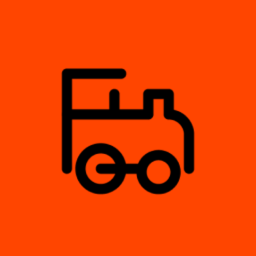Contents
Transport
- If you are planning to start your journey for example in six months, do not buy your pass yet. Subscribe for Interrail/Eurail newsletter and buy your pass when sales happen. These are few times a year and it’s usually 10-20% discount.
- Local transport – Check what sort of passes are available for local public transport – are there any sort of discounts you would be eligible for? If so, sometimes you have to apply for a card in advance. They are not always worthwhile (particularly things like city passes) which it’s worth knowing for example if a weekly/3 day etc. type local pass is worthwhile over single fares.
- Avoid reservations – Is there a slower option rather than using reservation? Sometimes there is, sometimes there isn’t. Eg reservations for the direct Paris to Barcelona TGV are very expensive. Using local trains via Portbou/Cerbère/La Tour de Carol might or might not be worthwhile depending how you value your time. Check times at http://rodalies.gencat.cat/ – they take interrail but do not always show in the rail planner app or worse show incorrectly. When you are buying reservations where possible buy these directly from the train company to save the extra booking fee charged by the interrail reservation service and sometimes for additional choices.
Accommodation
- Book attractions & accommodation in advance (or at least make sure you’ve looked if there is any saving to be had and considered if worthwhile).
- Check the price of your accommodation from multiple sources – Hostelworld, Booking, Hotels and directly from the web page of the accommodation provider. Some hostels might provide free breakfast or discounts if you book it directly from them and sometimes you might get some bonus points by booking from a bigger site.
- Pay extra for places with kitchens – it’s worth it rather than eating out. Bringing things like a packed lunch (and potentially having a tupperware box or similar) can also save when compared with eating out.
Attractions
- Book attractions & accommodation in advance (or at least make sure you’ve looked if there is any saving to be had and considered if worthwhile).
- Check if you are eligible for any discounts and if you need any proof for those. For example, an ISIC card for students.
- Check how popular attraction you are interested in is – for example, Eiffel Tower or Anne Frank House might be sold out for popular times or even completely sold out at holiday times for some days (or weeks!)
Miscellaneous
- Don’t exchange loads of cash in advance, some backup isn’t a bad idea. If you do need any, get it from a cash machine attached to a bank for less/no fees rather than a Euronet one. If some stranger approaches you to talk about money or exchange rates, do not believe them. They are going to scam you in some way or another.
- Card payments – And when paying with a card, decline the currency conversion if the payment terminal asks you about it. It’s also worth being aware of what international transaction fees your card charges, and if it’s high consider if it’s possible to get another one with smaller fees
- Think about phone charges – this one will depend a lot where you are from and your specific network. Is it worth getting another sim once you arrive in the EU?
- Buying things like plug adapters in advance. They always seem extortionate locally. Particularly in airport/train station tourist type shops.
- Get travel insurance in case something is lost or stolen. Keep your European Health Insurance Card with you.
- Download an offline map of the places you are going to visit, especially if it’s in a country that isn’t included on your mobile data plan – you can save quite much by using offline maps. Getting a local prepaid sim card might also be a good option.
Packing
- Bring a pair of earplugs if you are sleeping in a hostel or on a night train. You might have a snoring roommate or extremely squeaking bed.
- Powerbank is quite nice to have, especially with mobile tickets. You won’t find charging ports in every train or all times near your bunk at the hostel.
- Lightweight towel instead of basic beach towel. A microfiber towel or Turkish hammam towel will do the same job and take much less space.
- A reusable water bottle will save a lot of money (and environment!) instead of buying water bottles every day.
- Padlock or two in different sizes for hostels. They will provide you the lockers, but not locks.
- Small first aid kit. You are probably in cities, so small things will get you a long way. Plasters, blister band aids, painkillers (remember to check local rules and laws for medicines and keep them in their original packaging instead of random pills in plastic bag)
- Rain cover for your backpack or rain poncho which can fit your backpack and you under it.
- Solid shampoo & conditioner instead of liquid ones to prevent any soap spills on your bag.
